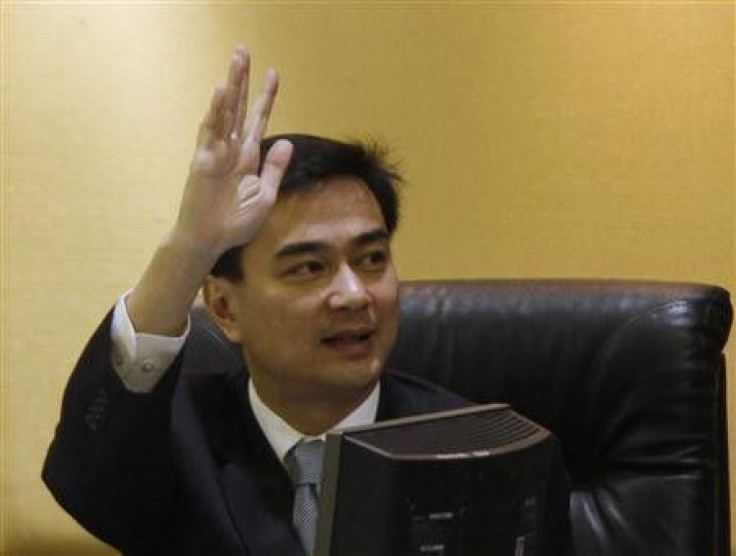Thailand's Red Shirts protest again but remain peaceful

Over 30,000 protesters took to the streets in Bangkok on Sunday in a peaceful anti-government rally, in the first move seen by the Red Shirts group since the emergency rule was lifted last month.
People were dressed in the trademark red shirts of the group, who are mainly supporters of the former Prime Minister Thaksin Shinawatra, who was ousted in a military coup in 2006. The group, which is officially known as United Front for Democracy against Dictatorship (UDD), state that the current government took power 'illegitimately' and is calling for a re-election.
2010 saw the worst political protests in over two decades, and several people were injured or died in the protests, leading the Thai government to declare a state of emergency in the country. The emergency rule was lifted in late December after the Red Shirts promised to step up street rallies and meetings.
The government thanked demonstrators for keeping Sunday's protest peaceful, though there has been some nervousness regarding the popularity of the protests.
Thailand faces another election sometime this year, and some critics believe this is a move by the government to win support from the poorer section of society.
Pantian Wattanayagorn, an acting spokesperson, said that the government had expected bigger numbers for the protest since the emergency rule was lifted in December, BBC reported.
He also believed that the government's various reform measures would stem the size of future protests, the report added.
The record turnout of red-shirted protestors in the streets of Bangkok will undoubtedly unnerve Prime Minister Abhisit Vejjajiva, who has pledged to hold a general election this year, Maria Patrikainen, a political analyst with IHS Global Insight said.
The renewed protest drive after months of lull sends a clear message to the government that the Red Shirts are not giving in on their political demands and indicate that the opposition forces are likely to present a touch challenge for Abhisit's ruling Democrat Party (DP) in the next polls, she added.
The political conflict will mostly be peaceful over the next few months, given that the security will be tightened ahead of the parliamentary elections and will remain high in Bangkok, Patrikainen said.
Vejjajiva had stated that elections would be held in the country when the situation is 'peaceful.'
However, as the Red Shirts group gain more support, it increases the cause for concern among the ruling party.
Looking forward, the political and security situation in Thailand is however heading in a worrying direction with the government becoming increasingly dependent on army backing, Patrikainen said.
Experts are also unsure if Shinawatra's party will be allowed to retain power in case they do win the elections.
Shinawatra's party had been accused of corruption and electoral fraud among other things. However, he has several supporters among the Red Shirts, which consists of a huge number of rural supporters.
Whatever the results of the next polls, the year 2011 is very unlikely to see Thailand's political crisis resolved and could instead highlight increasingly authoritarian tendencies of Thai politics, Patrikainen said.
© Copyright IBTimes 2024. All rights reserved.











